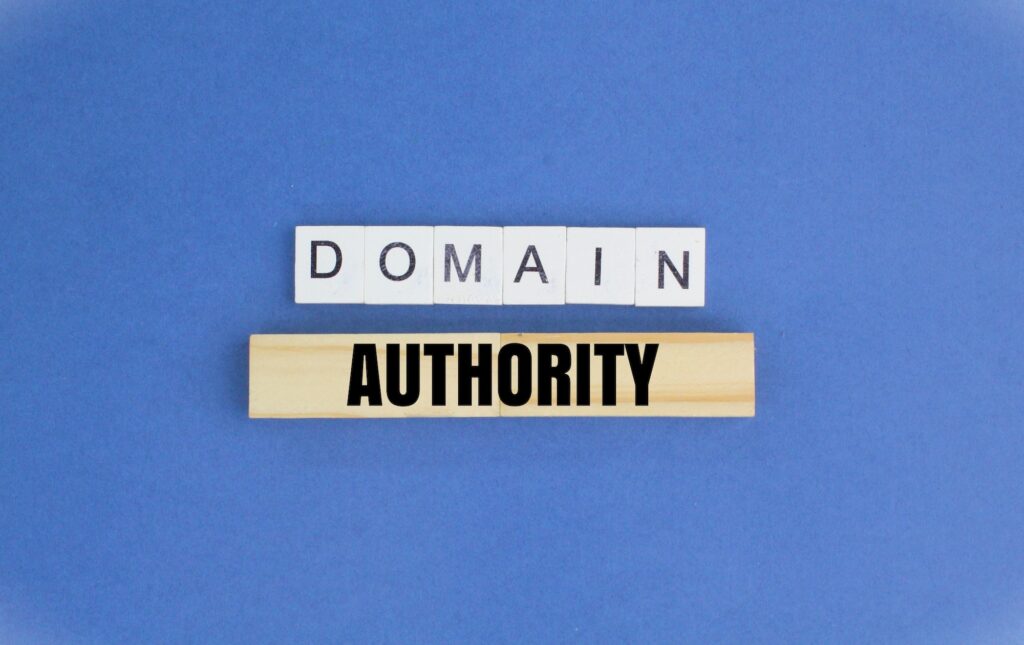In the realm of search engine optimization (SEO), the term “authority” holds significant weight. It speaks to the power, influence, and credibility of a particular piece of content on the internet. As website owners and content creators, we strive to establish authority in our respective niches to improve our chances of ranking well in organic search results. One key aspect of authority that cannot be overlooked is topical authority. In this guide, we will unravel the concept of topical authority, explore its significance in the SEO landscape, and equip you with strategies to enhance your own topical authority.
Understanding Topical Authority in SEO: A Measure of Trustworthiness
To grasp the essence of topical authority in SEO, one must first comprehend its definition within the context of SEO. Authority, in general, refers to the trustworthiness, credibility, and expertise associated with a website or content piece. Topical authority, more specifically, pertains to the measure of authority a website or content piece earns through the creation of high-quality, informative, and comprehensive content on a specific topic.
Imagine you stumble upon two blog posts about search engine optimization (SEO). The first is written by a renowned industry expert who has established themselves as an authoritative figure in the field. The second is authored by a novice who lacks the reputation and expertise of the first writer. Naturally, you would assign more weight and trust to the post written by the expert. This scenario exemplifies the impact of topical authority in shaping users’ perceptions and search engine rankings.
Topical authority demonstrates your deep understanding of your target audience and their information needs. It showcases your website as a reliable and comprehensive resource on a particular subject matter. As search engines strive to provide users with the most relevant and trustworthy information, they reward websites with high topical authority by ranking them higher in search engine results pages (SERPs).
The Distinction Between Topical Authority and Domain Authority
To fully comprehend the concept of topical authority, it is crucial to differentiate it from another commonly used term in SEO: domain authority. While both terms revolve around the notion of authority, they operate on different levels and serve distinct purposes.
Domain authority refers to the overall authority, trustworthiness, and credibility of an entire website or domain. It is a metric that takes into account various factors such as the quality of inbound links, the age of the domain, and other technical SEO aspects. Domain authority is more concerned with the overall strength of a website from an SEO perspective, encompassing the website’s entire scope of topics and content.
On the other hand, topical authority focuses specifically on the authority a website or content piece establishes on a particular topic. It assesses the depth, comprehensiveness, and quality of the content produced on a specific subject matter. While domain authority supports more technical SEO aspects like link building, topical authority emphasizes the creation of unique, high-quality content that establishes expertise and trust within a specific niche.

The Importance of Topical Authority for Content Creators
Now that we understand the essence of topical authority in SEO, it’s crucial to explore why content creators should prioritize building it. The benefits of cultivating topical authority can be truly transformative for your website’s visibility, reputation, and organic search rankings. Here are a few compelling reasons why topical authority should be a cornerstone of your content creation and marketing strategy:
1. Enhanced Search Engine Rankings
Topical authority plays a pivotal role in determining how search engines rank your content. By establishing yourself as an authority on a specific topic, you increase your chances of ranking higher in organic search results. When search engines perceive your content as authoritative, they are more likely to prioritize it over other competing content pieces.
2. Increased Organic Traffic
As your content ranks higher in search engine results, you will experience a surge in organic traffic. Users are more inclined to click on content that is perceived as authoritative and trustworthy. By cultivating topical authority, you not only improve your visibility but also attract more relevant and engaged visitors to your website.
🎯SEO Pro Tip #172: Topical authority can be REALLY powerful.
— Nick Zviadadze 🇺🇦 (@Nick_zv_) March 25, 2023
So, cover ONE category comprehensively instead of covering 4-5 different topics.
3. Building Trust and Reputation
Topical authority is closely tied to trust and reputation. When users encounter your content and perceive it as informative, comprehensive, and trustworthy, they are more likely to develop a positive perception of your brand. Establishing yourself as an authoritative resource within your niche helps build trust with both visitors and search engines, ultimately leading to improved long-term reputation and credibility.
4. Meeting User Expectations
Users turn to search engines to find answers, information, and solutions to their queries. By focusing on topical authority, you align your content with user expectations and provide them with the information they seek. By consistently delivering high-quality and comprehensive content on a specific topic, you become the go-to resource for users, ensuring their needs are met and increasing their satisfaction.
How Topical Authority Works: Insights from Google’s Hummingbird Update
To fully comprehend how topical authority operates, it is essential to delve into the evolution of Google’s algorithms and the advent of the Hummingbird update in 2013. This update revolutionized the way Google analyzed content, enabling it to better understand user queries and provide more relevant search results.
Prior to the Hummingbird update, Google’s algorithms primarily relied on keywords to understand user intent. However, this approach had its limitations as it failed to capture the full context and nuances of user queries. For example, if a user searched for “how to bake a pie,” Google would assume they were looking for a recipe. But if the user queried, “what is the difference between baking and cooking,” the search engine might miss the mark.
The Hummingbird update marked a shift towards semantic search, enabling Google to comprehend the context behind user queries and provide more accurate and relevant results. With the Hummingbird update, Google started analyzing content on a deeper level, focusing on relevance to user intent rather than just keywords.
This shift in Google’s algorithm paved the way for topical authority to emerge as a significant factor in determining search rankings. Content that demonstrates a comprehensive understanding of a topic, covers it in-depth, and addresses user queries effectively is rewarded with higher rankings, as it aligns more closely with user intent.
Strategies for Building Topical Authority
Building topical authority requires a strategic and systematic approach. While there are no overnight shortcuts to achieving it, employing the right strategies can significantly enhance your topical authority and solidify your position as an authority within your niche. Here are four key strategies to help you build topical authority:
1. Develop a Comprehensive Content Strategy
A robust content strategy is the foundation for building topical authority. Start by identifying the topics and keywords that resonate with your target audience. Conduct thorough research to understand the information needs, pain points, and interests of your audience. Create a plan to consistently produce high-quality content that addresses these needs and positions you as an authoritative resource in your niche.
Focus on creating informative, in-depth, and well-researched articles that cover various aspects of the topic. By offering valuable insights and solutions to your audience, you establish trust and credibility. Additionally, engage with industry discussions and share your expertise to further solidify your position as an authority in your field.
2. Embrace the Power of Topic Clusters
Topic clusters are a powerful tool for building topical authority. A topic cluster is a group of content assets centered around a broad topic, with a pillar page serving as the cornerstone. The pillar page provides a comprehensive overview of the topic, targeting more generic keywords. Cluster content, on the other hand, delves into subtopics and specific aspects of the main topic, targeting less competitive keywords.
Now the best dressed speaker at #NottmDigital, not to mention a bloody brilliant speaker, @chimammeje talking about topic clusters. pic.twitter.com/kI8CLKvAAx
— Barry Adams 📰 (@badams) June 29, 2023
By organizing your content into topic clusters, you demonstrate to search engines that you have comprehensive coverage of a particular subject matter. This helps search engines understand the relevance and depth of your content, thereby boosting your topical authority. Additionally, interlinking between pillar pages and cluster content enhances the user experience and signals to search engines the interconnectedness of your content.
3. Prioritize User Intent
Understanding and catering to user intent is pivotal in building topical authority. User intent refers to the underlying purpose or goal behind a user’s search query. By aligning your content with user intent, you can create content that directly addresses their needs, leading to higher engagement and increased authority.
To optimize your content for user intent, identify the different types of intent behind user queries. These can be categorized as “do” intent (action-oriented), “know” intent (informational), and “go” intent (navigational). Tailor your content to match these intents and provide the most relevant and valuable information to your audience.
4. Optimize Your Site Structure
A well-structured website plays a crucial role in building topical authority. Optimize your site structure by incorporating SEO indicators such as relevant keywords in titles, meta descriptions, and headings. Conduct thorough keyword research to identify the most effective keywords for different topic clusters and specific content pieces.
Integrate internal linking throughout your website to create a network of interconnected content. This helps search engines understand the depth and breadth of your content and enhances the user experience by guiding them to relevant information. Additionally, creating a sitemap and ensuring a logical flow of content on your website improves navigation and accessibility, further boosting your topical authority.
Takeaways: Elevating Your Topical Authority
Topical authority is a potent tool in your SEO arsenal, carrying the potential to propel your content to new heights. By becoming the go-to authority on a specific topic, you can secure higher search rankings, attract more organic traffic, and foster trust and credibility among your audience. Remember, building topical authority is a long-term endeavor that requires consistent effort, high-quality content, and a deep understanding of your audience’s needs.
As you embark on your journey to enhance your topical authority, keep in mind these key takeaways:
- Topical authority is a measure of your website’s expertise and trustworthiness on a specific topic.
- It is distinct from domain authority, which encompasses the overall strength and credibility of your website.
- Building topical authority enhances search engine rankings, increases organic traffic, and builds trust and reputation.
- Topical authority gained prominence with Google’s Hummingbird update, which prioritized relevance to user intent.
- Strategies for building topical authority include developing a comprehensive content strategy, embracing topic clusters, prioritizing user intent, and optimizing site structure.
By implementing these strategies and consistently delivering valuable, comprehensive, and authoritative content, you can elevate your topical authority and establish yourself as a trusted resource within your niche. Remember, topical authority is not a silver bullet, but a long-term investment that yields fruitful results. So, embark on your journey to become the go-to authority in your industry and unlock the power of topical authority in SEO.
Additional Information:
- Creating valuable and authoritative content is the cornerstone of building topical authority.
- Consistency in producing high-quality content is key to establishing and maintaining topical authority.
- Building relationships with industry influencers and thought leaders can amplify your topical authority.
- Leveraging social media platforms to share and promote your content can enhance your topical authority.
- Regularly updating and refreshing your existing content demonstrates your commitment to providing the most up-to-date and relevant information.






